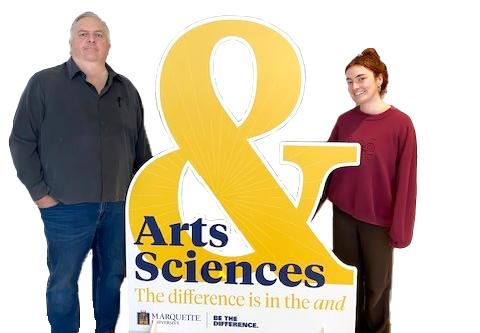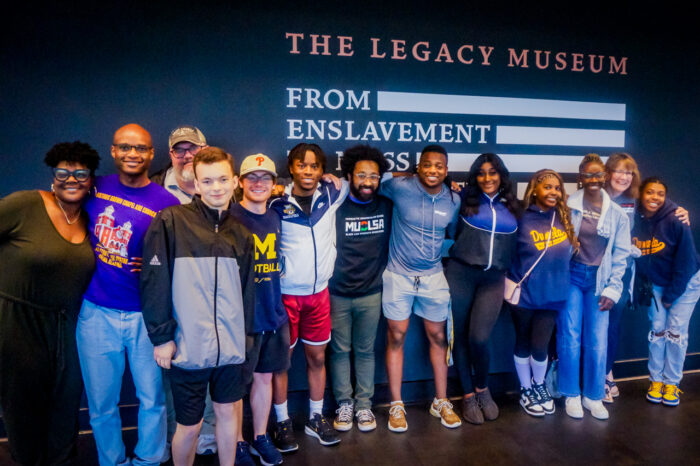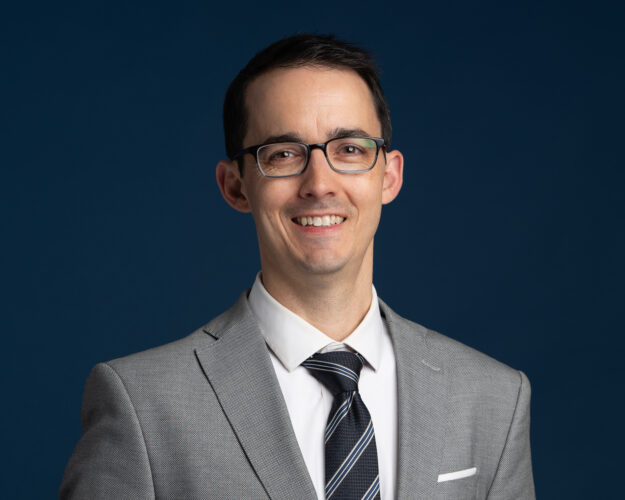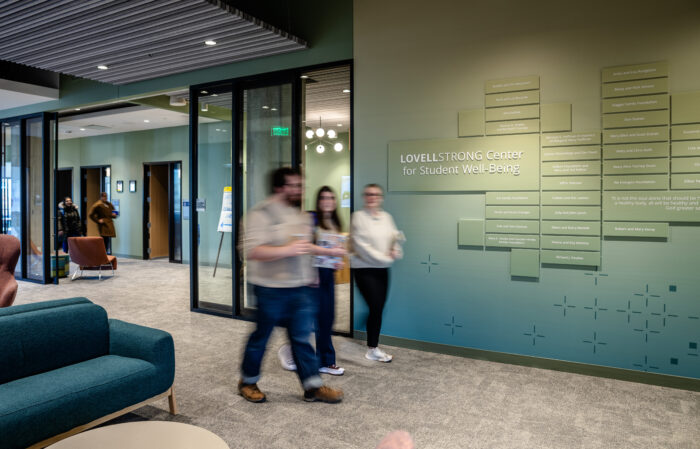At the start of her sophomore year at Marquette, Lucy O’Brien recognized her growing interest in peacemaking and nonviolence was too strong to ignore. In the span of a few weeks, she signed up for her first peace studies class, applied to work as a student employee at the Center for Peacemaking and declared a peace studies major.
In the Introduction to Peace Studies class, O’Brien learned about a multitude of social justice movements and leaders. The more she learned, the more her curiosity grew.
“From the salt march led by Gandhi to the Delano Grape Strike with Dolores Huerta and Cesar Chavez, this class sparked an interest and desire to learn more and become more involved in the pursuit of justice,” O’Brien says.
O’Brien also grew close with some of her classmates and student colleagues at the Center for Peacemaking. A few of these friends took part in summer peacemaking fellowships the year prior, exploring the aspect of nonviolence that most interested them. They all encouraged O’Brien to apply for one, but she didn’t know what to focus her project on.
That all changed after a class late in the semester focused on restorative justice in which the students enacted a peace circle — a discussion structure which brings together individuals who want to engage in conflict resolution. O’Brien knew she wanted to learn as much about peace circles and restorative justice as she could, so she reached out to Prof. Terry Rynne to see if he had any ideas for a fellowship project. That’s how she learned of Precious Blood Ministries of Reconciliation, a non-profit on Chicago’s south side.
Run by renowned restorative justice practitioner Fr. David Kelly, PBMR is an organization focused on reconciliation in three ways: building relationships, creating safe spaces and promoting restorative justice. In the summer of 2022, O’Brien completed an internship with PBMR through the Center for Peacemaking’s summer fellowship program.
“That summer, I worked under a woman named Pamela Purdie,” O’Brien said on her time with PBMR. “I was able to train as a circle keeper, work with their JustPeace program, and participate in discussions with formerly incarcerated individuals. This community was filled with love and kindness; they cared for each other in a way I had not seen before. Through this experience, I was able to learn more about peace circles and the impact they can have on victims, offenders, families and communities.”
Throughout the next school year, while O’Brien took more peace studies classes and continued to work at the Center for Peacemaking, the fellowship experience with PBMR was never far from her mind. She both learned more about restorative justice and realized how much more there was for her to learn. So, she decided to apply for another summer fellowship, this time to assist Dr. Ed de St. Aubin with a research project.

For years, de St. Aubin, associate professor of psychology in the Klingler College of Arts and Sciences, has partnered with Project RETURN (Returning Ex-incarcerated People To Urban Realities and Neighborhoods), a Milwaukee-based nonprofit. Last summer he applied for a Rynne Faculty Research Fellowship from the Center for Peacemaking to support his involvement in the same research project O’Brien was interested in.
Both O’Brien and de St. Aubin received the fellowships, and over the past six months, they’ve worked together on an evaluation of the Circles of Support program run by Project RETURN. This program is an enhanced support group that conducts circles, provides resources and builds community among individuals who have been impacted by the justice system (including family members of formerly incarcerated individuals).
Their evaluation is multifaceted, including observation, tracking and interviews. First, it will help identify program strengths and areas for potential improvement. Second, the qualitative and quantitative results will benefit Project RETURN as it prepares to secure funding to grow the program.
In addition to the fellowship research, O’Brien participated in the Psychology and Social Justice Internship program that de St. Aubin directs. Her internship placement has been with the Circles of Support program, providing her valuable insight into how the program is run and further developing her skillset as a restorative justice practitioner.
Reflecting on her experience working with Circles of Support and her field mentor Amanda Smit, Lucy said, “I’ve had the privilege of attending many circles through which I have formed relationships and learned about love, respect and understanding. I also participated in a prison re-entry simulation that showed me the hardship and lack of resources given to incarcerated individuals when re-entering society. I am thankful to have been able to work with individuals who are making a difference and standing up to unjust systems.”
This partnership is one of many examples of faculty, students and community organizations collaborating on research at Marquette. De St. Aubin hopes the conclusion of this project will lead to additional partnership opportunities with Project RETURN.
For O’Brien, completing the research will coincide with her graduation from Marquette. She is using this wealth of experience to support her applications to graduate programs in peace and justice, where she hopes to further prepare for a career as a restorative justice researcher-practitioner.



